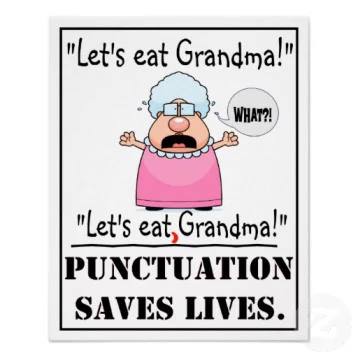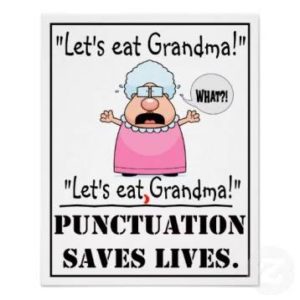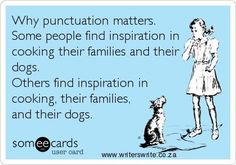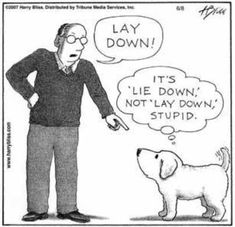
Easily Confused Words – Part 1
“The slovenliness of our language makes it easier for us to have foolish thoughts.”
–George Orwell
During my 25 years of reading and correcting papers and reports for students and adults, I have come across many different spelling and usage errors. Some have made me smile and some have made me groan and shake my head. Here is a small sample of the words I have seen confused or substituted the most often. Some of my own spelling and usage demons are included in this list too.
Advice, Advise: The noun advice means a suggestion or opinion regarding a course of action. Advise is a verb meaning to give advice, and the person who does this is an advisor or adviser (both are correct).
- My college advisor gave me some great advice. He advised me to take a variety of courses before declaring a major.
Affect, Effect: Affect is usually used as a verb meaning to influence or to have an effect on. (1) The noun effect means results or consequences. (2) The verb effect means to bring about.
- The coronavirus affected all of our lives and had a dramatic effect on schools, hospitals, and businesses. (1)
- When life returns to normal, businesses hope to effect changes in their operations. (2)
Al and All words: Some one-word and two-word forms vary according to the meaning:
- The ham is almost done; you are all most welcome to join us for dinner.
- By the time we were all ready to leave, the taxi was already here.
- We were not altogether happy about being all together at the camp.
The last two are frequently misused:
- All right is correct, meaning entirely right or adequate, but alright is not a word.
- A lot is correct but alot is not a word.
Capital, Capitol: Capital and capitol are often confused because they refer to things that are related. A town or city that is the seat of government is the capital but the building in which a legislative body meets is the capitol.
- Capital also refers to wealth, an uppercase letter, and something first rate or excellent, as in a capital idea.
- The Capitol building which houses the U.S. Congress is always capitalized.
Complement, Compliment: While distinct in meaning, they are often confused because they are pronounced the same and almost spelled the same. Complement is both a verb and a noun, meaning to complete a whole or satisfy a need. Compliment is also a verb and a noun meaning praise.
- “The antique silver was a complement to the beautifully set table.” (noun) (Am. Heritage)
- “The neutral color of the paint complements the beauty of the oak floors.” (verb) (Am. Heritage)
- The bride paid her friend a compliment on the exquisitely wrapped gift.
- The guests complimented the bride’s parents on the delicious dinner.
Fewer, Less: Fewer is used with individual items that can be counted (fewer potatoes) and less is used for quantity or when the item is regarded as a single entity (less oatmeal).
- “The fewer mistakes you make, the less embarrassment you will feel.” (Venolia)
Irregardless: This is a redundancy and is not considered standard English. Use regardless and you won’t get into trouble with the Grammar Police.
Its, It’s: Its is the possessive pronoun and it’s is a contraction meaning it is or it has.
- “The apostrophe has a life of its own.” (Venolia)
- “It’s easy to put the apostrophe in its place.” (Venolia)
Lay, Lie: Lay means to place or put down while lie means to recline.
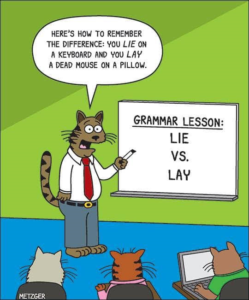

More confusing and misused words will appear in “Easily Confused Words-Part Two.”
Resources
Editors of the American Heritage Dictionaries. 100 Words Almost Everyone Confuses and Misuses. Boston: Houghton Mifflin Harcourt Publishing Company, 2016.
Venolia, Jan. Write Right! A Desktop Digest of Punctuation, Grammar, and Style. 4th Edition. Berkley: Ten Speed Press, 2001.


